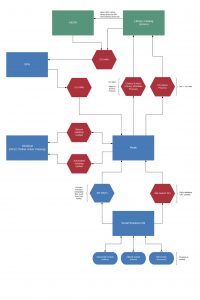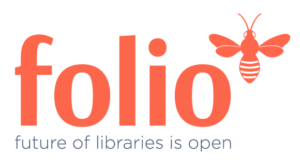Did you ever stop to think about how the materials you find in the Library’s catalog search get there? Did you know the Duke Libraries have three staff members dedicated to making sure Duke’s library catalog is working so faculty and students can do their research? The library catalog is the backbone of the library and I hope by the end of this post you will have a new appreciation for some of the people who support this backbone of the library and what is involved to do that.

Discovery Services is charged with supporting the integrated library system (ILS), aka “the catalog”. What is an “integrated library system”? According to Wikipedia, “an ILS (is used) to order and acquire, receive and invoice, catalog, circulate, track and shelve materials.” Our software is used by every staff person in all the Duke Libraries, including the professional school libraries, the Goodson Law Library, the Ford Library at the Fuqua School of Business, and the Medical Center Library, and the Duke Kunshan University Library. At Duke, we have been using Ex Libris’s Aleph as our ILS since 2004.
Discovery Services staff work with staff in Technical Services who do the acquiring, receiving and invoicing and cataloging of materials. Our support for that department includes setting up vendors who send orders and bibliographic records via the EDIFACT format or the MARC format. Some of our catalogers do original cataloging where they describe the book in the MARC format, and a great many of our records are copy cataloged from OCLC. Our ILS needs to be able to load these records, regardless of format, into our relational database.
We work with staff in Access and Delivery Services/Circulation in all the libraries to set up loan policies so that patrons may borrow the materials in our database. All loan policies are based on the patron type checking out the item, the library that owns the item and the item’s type. We currently have 59 item types for everything from books, to short-term loans, sound CD’s, and even 3D scanners! There are 37 patron types ranging from faculty, grad students, staff, undergrads, alumni and even retired library employees. And we support a total of 12 libraries. Combine all of those patrons, items and libraries, and there are a lot of rules! We edit policies for who may request an item and where they can choose to pick it up, when fines are applied and when overdue and lost notices are sent to patrons. We also load the current course lists and enrollment so students and faculty can use the materials in Course Reserves.

The ILS is connected with other systems. There was a recent post here on Bitstreams about the work of the Discovery Strategy Team. Our ILS, Aleph, is represented in both the whiteboard photo and the Lucidchart photo. One example of an integration point the Library’s discovery interface. We also connect to the software that is used at the Library Service Center (GFA). When an item is requested from that location, the request is sent from the ILS to the software at the Library Service Center so they can pull and deliver the item. The ILS is also integrated with software outside of the library’s support including the Bursar’s Office, the University’s Identity Management system, and the University’s accounting system.
We also export our data for projects in which the library is involved, such as HathiTrust, Ivy Plus, TRLN Discovery (coming soon!), and SHARE-VDE. These shared collection projects often require extra work from Discovery Services to make sure the data the project wants is included in our export.
Discovery Services spent the fall semester working on upgrading Aleph. We worked with our OIT partners to create new virtual servers, install the Aleph software and upgrade our current data to the new version. There were many configuration changes, and we needed to test all of our custom programs to be sure they worked with the new version. We have been using the Aleph software for a more than a decade, and while we’ve upgraded the software over the years, libraries have continued to change.
We are currently preparing a project to migrate to a new ILS and library services platform, FOLIO. That means moving our eight million bibliographic records and associated information, our two million patron records, hundreds of thousands orders, items, e-resources into the new data format FOLIO will require. We will build new servers, install the software, review and/or recreate all of our custom programs that we currently use. We will integrate FOLIO with all the applications the library uses, as well as applications across campus. It will be a multi-year project that will take thousands of hours of staff time to complete. The Discovery Services staff is involved in some of the FOLIO special interest groups working with people across the world who are working together to develop FOLIO.
We work hard to make it easy for our patrons to find library material, request it or borrow it. The next time you check out a book from the library, take a moment to think about all the work that was required behind the scenes to make that book available to you.



